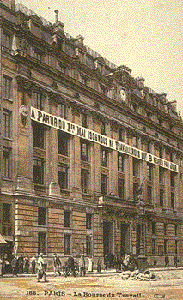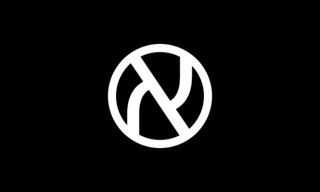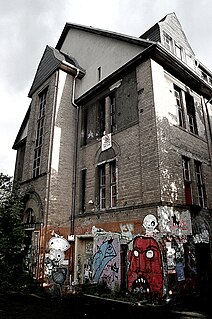 W
WThe Bourse du Travail, a French form of the labour council, were working class organizations that encouraged mutual aid, education, and self-organization amongst their members in the late nineteenth and early twentieth centuries.
 W
WThe Committee of 100 was a British anti-war group. It was set up in 1960 with a hundred public signatories by Bertrand Russell, Ralph Schoenman, Michael Scott, and others. Its supporters used mass nonviolent resistance and civil disobedience to achieve their aims.
 W
WThe Doukhobours or Dukhobors are a Spiritual Christian ethnoreligious group of Russian origin. They are one of many non-Orthodox ethno-confessional faiths in Russia, often categorized as "folk-Protestants", Spiritual Christians, sectarians, or heretics. They are distinguished as pacifists who lived in their own villages, rejected personal materialism, worked together, and developed a tradition of oral history and memorizing and singing hymns and verses. Before 1886, they had a series of single leaders. The origin of the Doukhobors is uncertain. The first written records of them are from 1701, although some scholars suspect earlier origins.
 W
WGive-away shops, freeshops, free stores or swap shops are stores where all goods are free. They are similar to charity shops, with mostly second-hand items—only everything is available at no cost. Whether it is a book, a piece of furniture, a garment or a household item, it is all freely given away, although some operate a one-in, one-out–type policy. The free store is a form of constructive direct action that provides a shopping alternative to a monetary framework, allowing people to exchange goods and services outside of a money-based economy.
 W
WIllegalism is a tendency of anarchism that developed primarily in France, Italy, Belgium and Switzerland during the late 1890s and early 1900s as an outgrowth of individualist anarchism. Illegalists embrace criminality either openly or secretly as a lifestyle. Illegalism does not specify the type of crime, though it is associated with theft and shoplifting.
 W
WInfoshops are places in which people can access anarchist or autonomist ideas. They are often stand-alone projects, or can form part of a larger radical bookshop, archive, autonomous social centre or community centre. Typically, infoshops offer flyers, posters, zines, pamphlets and books for sale or donation. Other items such as badges, locally produced artworks and T-shirts are also often available. Infoshops can also provide printing and copying facilities for people to produce their own literature or have a meeting space.
 W
WJewish anarchism encompasses various expressions of anarchism within the Jewish community.
 W
WKabouters were a Dutch anarchist group in the 1970s. It was founded by Roel van Duijn and one of its objectives was to set up an alternative society based on Van Duyn’s ideas as stated in his book, De boodschap van een wijze Kabouter. Van Duyn for some time worked at an organic farm and asked the farmer if they were going to get a harvester. “No,” the farmer responded “Noisy machines chase away the kabouters, and we need them to keep our plants healthy.” That is why Van Duyn used this image.
 W
WProvo was a Dutch counterculture movement in the mid-1960s that focused on provoking violent responses from authorities using non-violent bait. It was preceded by the nozem movement and followed by the hippie movement. Provo was founded, on 25 May 1965, by Robert Jasper Grootveld, an anti-smoking activist, and the anarchists Roel van Duijn and Rob Stolk. The term was used for the movement as a whole and for individual members. Provo was officially disbanded on 13 May 1967.
 W
WThe Rauch-Haus-Song is a track performed by West Berlin band Ton Steine Scherben on their second studio album Keine Macht für Niemand. It has become famous in leftwing circles in Germany.
 W
WThe Really Really Free Market (RRFM) movement is a horizontally organized collective of individuals who form a temporary market based on an alternative gift economy. RRFM events are often hosted by people unaffiliated with any large organization and are encouraged to sprout up by anyone, anytime, anywhere. The RRFM movement aims to counteract capitalism in a proactive way by creating a positive example to challenge the questioned myths of scarcity and competition. The name Really Really Free Market is itself a play on words as it is a reinterpretation and re-envisioning of the term free market, which generally refers to an economy of competition governed by supply and demand. The RRFM holds as a major goal to build a community based on sharing resources, caring for one another and improving the collective lives of all. Markets often vary in character, but they generally offer both goods and services. A RRFM usually takes place in an open community space such as a public park or community commons.
 W
WSquat Milada is a First Republic villa located in the Libeň district of Prague. Milada was intended to be demolished in the 1980s and thus deleted from the cadastre, becoming a house which officially did not exist. It became one of the Czech Republic's best known squats, occupied from 1997 until 2009. It was then reoccupied for a day in 2012. Acting as a self-managed social centre and infoshop hosting concerts and events, Milada was also home to a number of people. Despite various plans for the site, as of 2019, the building was standing derelict.